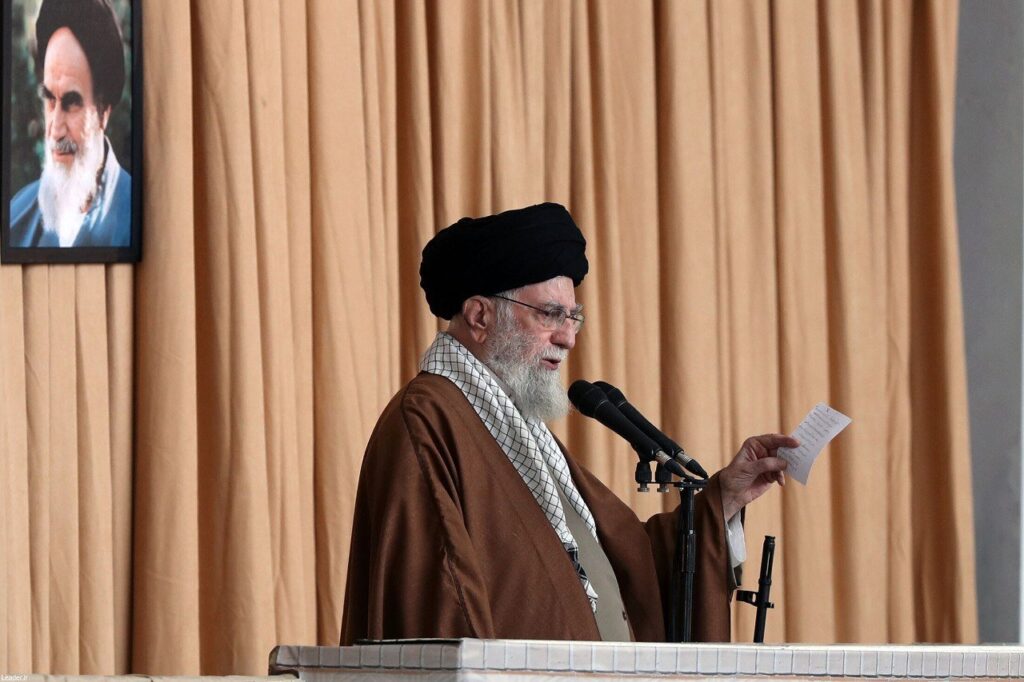Tehran – In recent weeks, conflicts between Iran and the US have escalated so much that Iran’s peaceful nuclear program has been at the heart of the issue.
While Iran has repeatedly affirmed its commitment to sovereignty to advance peaceful nuclear technology, the United States, which is above President Donald Trump, has returned to aggressive rhetoric and threats.
On March 9, 2025, Iran’s permanent mission to the United Nations reiterated the country’s desire to talk. Nevertheless, Iranian authorities stressed that the country’s inherent rights to peaceful nuclear technology is unnegotiable.
This principled stance was repeated the following day by Ministry of Foreign Affairs spokesman Esmaeil Baqaei. Speaking to reporters weekly, Bakaei emphasized that “constructive negotiations should be based on mutual respect rather than threats or forced diplomacy.” He stressed, Iran is willing to be involved, but not under pressure.
Also, on March 31, shortly after Trump’s new threat, the idiot ray said, “Violence breeds violence, peace creates peace. The United States can choose a course…; and acknowledge the outcome.”
Escalation due to US threats
Despite Iran’s measured approach, the US is adopting an increasingly hostile tone. In an interview with the US media outlet on February 9, Donald Trump claimed he would seek deals from Iran with harsh military concessions and warn him that failure to comply would lead him to “bombing hell” abroad.
On March 13, Trump wrote to the leaders of the Islamic Revolution.
Then, in an NBC interview on March 31, Trump once again raised his language and threatened to release “something they’ve never seen before” if Iran refused to be involved.
In a parallel show of forces, the US Air Force Global Strike Command confirmed the deployment of a B-2 spirit stealth bomber to Diego Garcia Base in the Indian Ocean, further promoting tension.
Washington’s economic pressure campaign is also being strengthened, with sanctions aimed at crippling Iran’s oil exports. These sanctions are a continuation of the “maximum pressure” policy launched during Trump’s first term, in which he unilaterally withdraws from the 2015 Joint Comprehensive Action Plan (JCPOA) and waives a multilateral agreement that Iran has fully respected.
Iran’s response: Rebellion without provocation
While acknowledging the message, Foreign Minister Abbas Aragut stressed that Iran would not succumb to pressure. “Iran is embracing an indirect dialogue,” he said, “but it will not accept the threat of compromising its sovereignty and dignity.”
President Masoud Pezeshkian reiterated this perspective on March 30, emphasizing that direct discussions with the United States are not an option due to the deep, deep-rooted mistrust arising from America’s historical actions, particularly the one-sided exit from the JCPOA. “Iran has never blocked the path of indirect consultation,” he said. “But we won’t take part under pressure.”
In the meantime, the global community has expressed great concern about Washington’s provocative position. On April 2, Russian deputy minister Sergei Lyabukov criticized Trump’s threat as “illegal and unbearable” and warned that attacks on Iran’s nuclear sites could lead to widespread disruption in the region.
Lyabakh also provided Russian support in mediating consultations, urging both sides to adopt a mature diplomatic approach. “This is a key moment that requires dialogue rather than a Saber Ratling,” he argued.
The Guardian also reported on March 31 that Arab countries in the Persian Gulf are wary of US military action against Iran, believing that it will only deepen regional instability.
Doctrine of restraint
What is frequently ignored in Western accounts is the religious belief system that shapes Iran’s nuclear strategy. Ayatollah Khamenei has issued a binding fatwa that prohibits the development or use of nuclear weapons, citing Islamic principles that reject weapons of mass destruction.
This position was strengthened on March 31 by Senior Ali Larijani, Senior Assistant to the Leader of the Islamic Revolution. However, Larijani warned that if Iran is attacked under the false pretext of nuclear ambitions, it may be forced to reconsider its stance under public pressure.
Even the US intelligence agency has repeatedly acknowledged that Iran is not pursuing nuclear weapons. I question the rationale for Washington’s assertive attitude.
In response to the escalation of the threat, Iran formally filed a complaint with the UN Security Council on March 31. The complaint of Iran’s UN ambassador Said on Irabani has asserted that Article 2(4) of Trump’s violation of statement prohibits threats or adoption of sovereign states.
Tehran also summoned the acting chief of the Swiss embassy, looking after the US interests to Iran, to protest the Washington threat. Iran also condemned the unstable role of the Zionist regime in areas that are considered chaos collaborators.
In a special report on March 31, the Tehran Times revealed that Iranian troops have prepared missiles that could target sites related to the US in light of ongoing military threats from the US. The report urged the White House to respond, and James Hewitt informed the free Washington beacon that he didn’t know he would “be kind” to what Trump characterized as a “military threat.”
On April 3, Trump argued that Iran may be ready for direct negotiations, suggesting that intermediaries may no longer be needed. However, Iran has not confirmed any change in its position.
Progress: not dialogue, not domination
As the standoffs continue, Iran continues to be committed to peace, stability and dialogue. Such dialogue is subject to mutual respect and international law.
Diplomacy is the only viable path, not domination. The United States must now choose to intensify the conflict or return to the path of reason.
Iran’s message is clear. The doors are open for negotiations, but the national dignity is not for sale.

